Earlier this year, the internet was abuzz with a retrospective meme: Where were you ten years ago? Naturally, my social media bubble took this deep, personal question and answered it purely in terms of board gaming. But what a time it was for board games! More than simple nostalgia, 2009 has the true feel of an inflection point in modern board gaming’s ongoing rise.
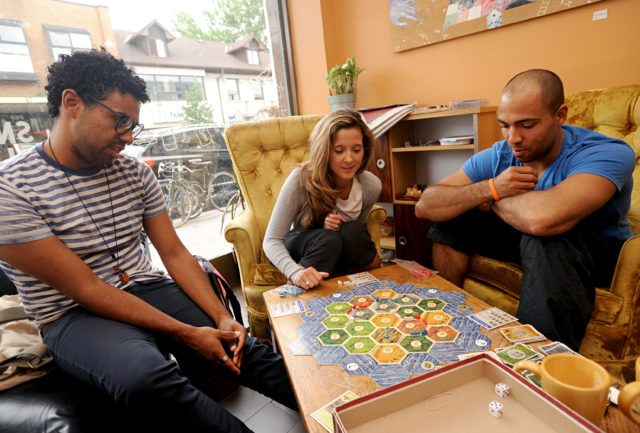
Unfortunately, social media offers more than just whimsical memes. Online culture is also home to rather unpleasant behaviours such as gatekeeping and brigading, to name a few. The worst side of communities are exposed when coupled with fear, manifested as a desire to defend the status quo. Will shifting tends rend a fan’s tastes passé. Will they no longer be catered to in a market more eager to court newcomers and new trends? Regardless of your fandom or hobby, you’ve surely seen several examples of this since 2009.
However, many such fears reveal themselves to be strawmen once asked “has this ever actually happened?” As times change, it is only natural for people and their tastes to also change. Let this serve as a cautionary tale for those ready to take up pitchforks. Your niche hobby will always be there for you, but if defined too tightly, it may grow stale in your future eyes.
My ten year journey has certainly been one of shifting tastes and motivations, but I’ve also invited the DWP staff to share their stories of gamers over the prior decade. How are our interests and desires being served today, in comparison to those which drove us into the hobby in the first place? Many aspects of the board game hobby have changed, but one remains the same: the wide range of experiences available have kept us all engaged.
Matt Morgan
While I’d always had some mild involvement in tabletop gaming, 2009 was the year I began viewing board gaming as an active hobby. Recently graduated from university, I developed a need for the in-person social interaction that the gaming table is apt to facilitate. During the boom times for services such as XBox Live, and with my gaming friends had become scattered across the region, it was easier to take to a headset than take to the road. Board games presented an opportunity to get together again.
This newfound curiosity with modern board games was also fuelled by a looming suspicion that video games quality would enter a downward spiral. The dawn of downloadable content had arrived, creating more work on consumers to separate designer’s intent from corporate cash grab (this would only become more difficult as microtransactions became prevalent). Board games, on the other hand, came with the allure of an evergreen experience. Forty years on, a box of cardboard should retain its same play value, with strategies requiring countless plays to master.
There was even the question of whether video games in their current form would still exist. Only a year into a world of smartphone apps, it was not unthinkable that developers would ditch the AAA productions for the riches of casual phone games, leaving my friends and I to feed on the scraps. This prediction fared rather poorly, as AAA video games still very much exist. What’s changed is that I almost never play them.

I stocked my shelves with modern classics over ten years, but the quest for a fixed set of evergreen titles proves elusive. Shiny new cardboard presents frequent temptation. While gameplay is often timeless, it turns out even board game graphics improve with each new generation. More recently, the increasing prevalence of expansions and promos has brought analog “DLC” to the fore, while classic games are left to fall out of print, only to return with revised editions. .
Times change, and people are capable of changing with them. This should be celebrated and embraced, not resisted and decried. Those old friends I was bringing to the table for face-to-face gaming? We enjoyed the experience, but have now shifted back to video games in the form of digital board game port, while game nights have instead become a wonderful opportunity to meet new local friends. And yeah, I’ve bought a few expansions and promos.
But now, on to a wider look at where the rest of our Daily Worker Placement writers were, and a great collective example that while we all have very different origin stories, we’re all happy to share a table.
Sean Jacquemain
I was really excited when Matt introduced the idea of looking back on our own personal 10 years of gaming. Ten years ago, I was about to start a job at Snakes & Lattes board game cafe. I knew games sure, but my world was about to explode. I had been playing a lot of Catan, Carcassonne, Dominion, and St. Petersburg. Working at Snakes was like taking a Masters course in gaming. I learned so much, so fast. I added games like Puerto Rico, Power Grid, and King of Tokyo to my repertoire, as well as some lesser known classics like Attika, El Grande, Evo, and so many more. Really, working at Snakes made me the person I am today, at least as far as the gaming hobby is concerned.
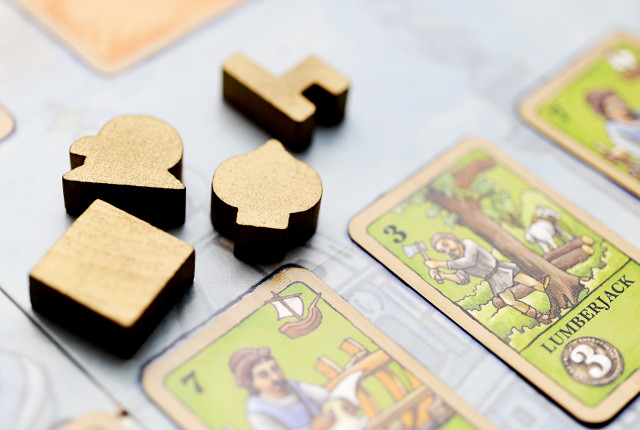
I spent three formative years there, and from that position I received an invite to the Gathering of Friends, Alan R. Moon’s annual event. Over the next ten years, I worked pretty consistently in the industry, for Asmodee, CMON, Asmodee again, as well as Synapses Games, KTBG, and Burnt Island Games.
I’ve gone to a bunch of shows over the years (lost track at this point). Mostly Gen Cons and Origins, but also some BGGs, Basecamps, Breakouts, TABS, SDCC, and more. This year, I’m going to my first Grandcon and I’m pretty excited about that.
I’ve changed of course in the last decade. I’ve gone from an eager student wanting to learn everything I could about games, to moving behind the curtain and seeing how the sausage gets made. I’ve definitely had moments of board game burnout. Times when playing a game was the last thing I wanted to do, but I always come back to my favourite pastime.
It’s been an incredible ride to be a part of the hobby at this time. I remember thinking back to those early days at Snakes, when we had lineups around the block and a packed, crazy house every night. People were coming to play board games. They were paying to play board games. I knew at that time that we were on the crest of a wave. I haven’t seen it crash yet, and maybe it never will.
So what have I observed over this time? I think the traditional lines between Ameritrash and Euro games have been blurred over time. New concepts in gaming have emerged, like Legacy and consumable games, narrative games, and communication games. Co-ops, which were a relatively new concept 10 years ago are now quite prevelant. In short, the hobby has grown and expanded to include more people, more tastes, and more originality in the design.
It will be exciting to see what the next 10 years hold in store.
Nicole Hoye
Ten years ago, I moved to Canada. I had no games with me, just what I could fit in my suitcase. I’d gamed a little in the year and a bit before while living in London, but it wasn’t as widespread as RPGs were at that point. I was more thoroughly involved in my comic reading hobby at that point, with a sprinkling of gaming here and there.
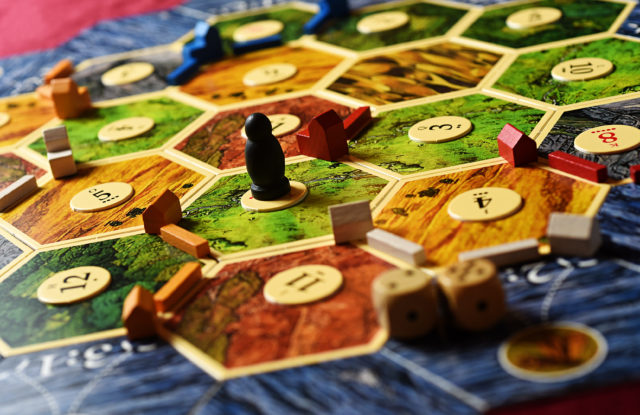
After hitting the ground here, I would occasionally have the opportunity to join a game of Catan, perhaps some Munchkin or Fluxx. The world of Toronto gaming had yet to open to me – it was there, thriving with Meetup groups! It wasn’t until the first board game café opened in 2010 that things would really kick off. I’d go weekly, getting to know staff who had been in the tabletop community here for ages and relished the opportunity to work in a space like that.
It was then that I really scratched the surface and began to use Board Game Geek, wander around friendly local game stores and start to realize there were conventions and all sorts of folks excited about the “hotness”. My first ever brush with excitement about a new release was coming home from a vacation and rushing to try the recently-released Castles of Burgundy. It’s wild to think back on that time, when I’m now seeing slews of new games every year and attending conventions to check them out. Safe to say, I’m in this now!
David Weiss
David wrote about his experiences at the Origins Game Fair in 2009. You can read about them here.
Tim Fowler
2009 was a year of change for me: I had just moved to Ottawa to start working on my PhD. This meant I was gaming considerably less. I recall playing a lot of Dominion, Carcassonne, and Tigris & Euphrates with a very small gaming group up in Ottawa. I trust, though, that the rest of this piece is going to cover board gaming in depth, so I think I’ll talk about the state of CCGs in 2009 (with, of course, the caveat for all my CCG coverage: I’m not here to talk about Magic).
When I first got the invite to scrawl something about gaming in 2009, I started thinking about what was actively in production in 2009, and it turns out that the mid-to-late 2000s was a real low point for (non-Magic) CCGs. This year marked the end of Shadowfist’s tenure with Z-Man games. While Shadowfist would go on, it quickly became an independent CCG, slipping even further off of the radar of the mainstream. Vampire: The Eternal Struggle would see it’s last physical expansion in 2010, and while there were periodic print-and-play expansions, the game wouldn’t see new physical cards again until 2018. Babylon Five, Doomtown, Star Wars, and Star Trek had all been long out of production in 2009. In fact, Legend of the Five Rings was probably the only big non-Magic CCG to have a presence in 2009. If you were tossing around cardboard in 2009, it was probably from a game that hadn’t seen new cards in years.
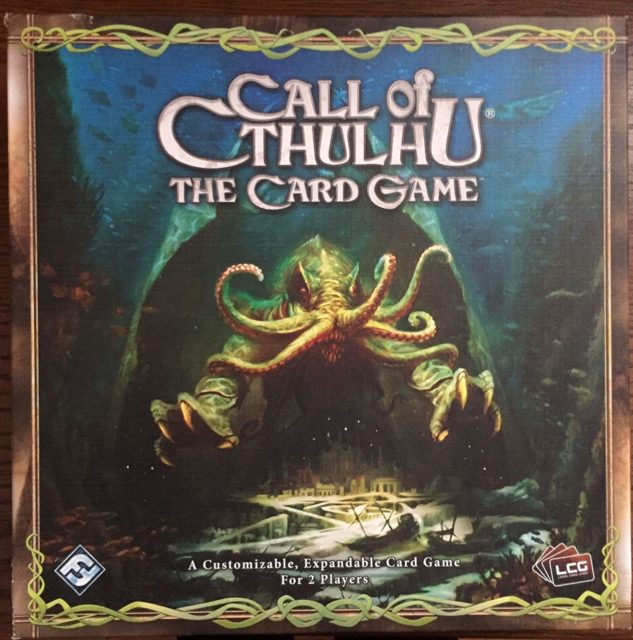
So, besides L5R, what was happening in 2009? Fantasy Flight Games, in 2008, launched Call of Cthulhu: The Card Game and A Game of Thrones: The Card Game. Why highlight these two? These games marked a new distribution model by FFG: The Living Card Game (LCG).
For the uninitiated, the distribution model for collectable card games (like Magic) is blind-buying packs of randomly distributed cards: a booster pack contains a number of randomly selected common, uncommon, and rare cards. This differs from a living card game, where the contents of each pack is fixed: you know exactly what you are buying. In most cases you get enough copies of each card in a pack to include the maximum number of copies of that card in your deck. Call of Cthulhu has a three copies of an individual card limit, so each pack contains three copies of each card included. No more ripping through packs of cards to find the one rare card you need. No more staying up late to snipe eBay auctions to get a single card to round out your collection.
While neither Call of Cthulhu or the first edition of A Game of Thrones were wild successes, they were important as the trail-blazers of this new release model. Since 2008, FFG has released ten different LCGs. Most card games out there now, especially the independent ones, are released in the model of a Living Card Game. “Living Card Game” is trademarked by FFG, so different games signify that they are non-random using different names, but the principle is the same. We now have Shadowfist, Doomtown: Reloaded, Vampire: The Eternal Struggle, and a myriad of other card games released in this non-random format.
2009 was not a great game for new or active CCGs. Not one bit. If Magic launched the first wave of CCGs in the mid-1990s, then 2009 was the very beginning of a second wave of card games: games based on a non-random distribution of cards.
Jon-Paul Décosse
Ten years ago, my personal life was in upheaval – between divorce, mounting career insecurities, and faith in flux, the ground beneath my feet felt uneven and unsafe. As corny as it may sound, board gaming was a reliable constant at that time, and is an activity that I’ve prioritized in the decade since.
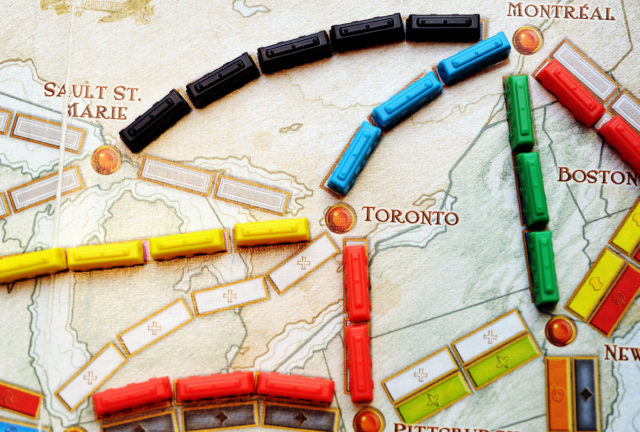
My most played games from 2009 include Dominion, Say Anything, Agricola, Stone Age, and surprisingly (as it’s never been a favourite), Race for the Galaxy. Of the 140+ games played that year, only six are in my collection today – Ticket to Ride, Pandemic, Shadows Over Camelot, Nexus Ops, Manhattan, and Star Wars: The Queen’s Gambit.
Now with two young daughters, gaming is at the precipice of another upheaval, as they begin to form their own opinions on which games get to the table, and how we invest our time in the hobby as a whole!
Billy Chandler
As a younger board game hobbyist, I often interact with those who have been in the hobby for much longer than me. Those with knowledge that far surpasses mine. Those who remember when classic games were released, and those who remember trends in gaming that I’m not even aware existed. My knowledge is much more immediate, much more ephemeral.
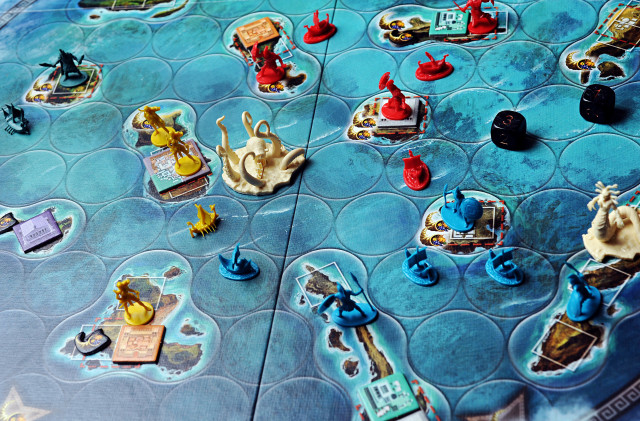
Ten years ago, I was searching for this community, for the late night game nights and for the diverse collective that is created through a shared interest. In 2009, my first exposure to real board games was beginning through some of the older, wiser, board game fans around me. High school lunch hours were filled with games of Bang! and Cyclades, despite not really knowing anything about the hobby. I played Ca$h ‘n Guns at breaks for rehearsal while working on Shakespeare shows. I had exposure to some lovely games.
However, the role that board gaming filled was that of killing time during breaks. It was less about community and less about the games. During this time, the community role was being filled by competitive Super Smash Bros Melee. In time, competitive X-Wing Miniatures would take over that mantle, and then even that would eventually give way to board gaming in general. Now board games operate as my main focal point when it comes to building relationships, getting to know people, and looking for an enjoyable evening.
I don’t think I would have gotten here without those board game role models introducing me to new titles when I was younger. I also feel that exploring competitive gaming culture and delving into the lifestyle side of gaming helped push me to the point where I am now. I’m thankful every day that I got here.
Steve Tassie
2009 was the first year I was employed as a teacher, and while there were parts of the work I enjoyed, it was one of the most miserable years of my life. Fall of 2009 marked my first full time teaching position. In Lindsay, Ontario. There was no way I could drive the Toronto-Lindsay commute every day and make it to school for 8am every morning, so I moved to Lindsay for the school year. Away from my wife, and my friends. Most importantly (for this piece), away from my games.
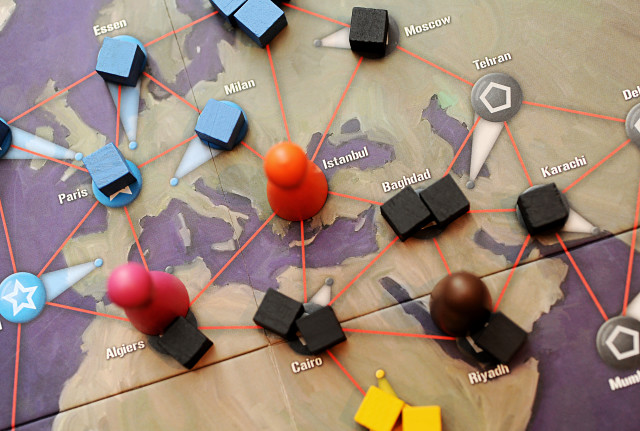
I was home every weekend, and tried to do as much gaming as possible, but I also needed to make time for my wife with those precious few hours of freedom, so gaming suffered. I tried to get the students in Lindsay interested in a board game club, but unlike the schools I had attended in Toronto in my youth, my school in rural Lindsay had virtually no afterschool activities that weren’t sports. Everyone who didn’t own their own car was bussed to school, and 15 minutes after the sounding of the afternoon bell, the school was a ghost town.
That left lunch time. Many school clubs had lunch meetings, because none of them could do afterschool ones. I had a few quite eager students, but, unsurprisingly, they were in a number of lunchtime clubs, and had to split their time their different extracurriculars. Combined with lunches being less than an hour long, we were unable to get into much in the way of interesting games, as by the time a game of, say, Pandemic, would be set up and explained, there wasn’t enough time left to play. And next week would have a different batch of kids show up, so we couldn’t save time by skipping the teach.Come spring of 2010, I was glad to be home, away from Lindsay, and back with my loved ones: my board games.
Comments
No comments yet! Be the first!